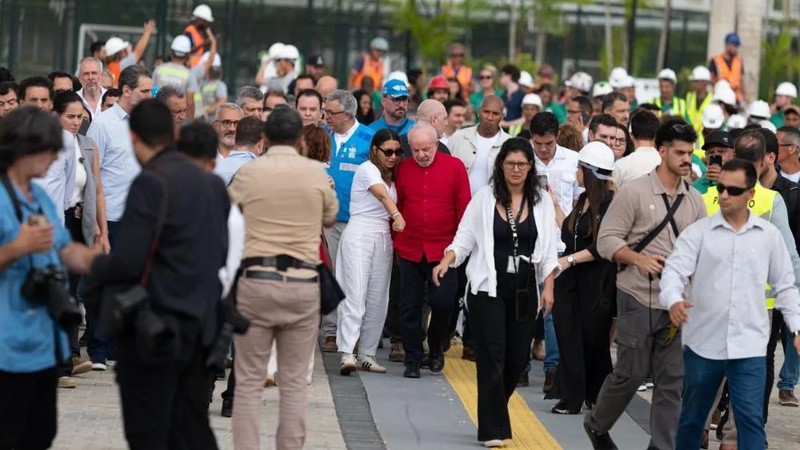World leaders are set to deliver a message of solidarity and renewed resolve to address global warming days before the start of the COP30 climate summit in Brazil, despite lackluster attendance and the erosion of a key goal to curb rising temperatures.
It’s a challenging backdrop for the more than 50 heads of state and government ministers expected in the Amazonian city of Belém on Thursday and Friday. Gone is the confidence and sense of grand ambition that united nearly 200 nations a decade ago, with the adoption of the landmark Paris Agreement. Left in its place is a gnawing sense of urgency and the hard reality of implementing some climate promises, especially as the accord’s most ambitious goal – to keep warming to 1.5C above pre-industrial levels – moves further out of grasp.
“It’s different than what it was 10 years ago,” said Manish Bapna, president of the Natural Resources Defense Council, a US-based environmental advocacy group. “But the world has changed in those years in some pretty profoundly important ways.”
The leaders summit is only a prelude to the official negotiations that begin Monday. Still, exhortations from heads of state can help frame the conference and galvanize action.
Roughly 190 countries have confirmed plans to send representatives to COP30. But fewer than 60 presidents, prime ministers and other high-level officials are on track to participate in the leaders summit. The logistical challenges of getting to Belém – a city in the northern state of Pará with little tourism infrastructure – and securing scant lodging there have deterred some from making the trip.
Among the most notable absences will be the heads of the world’s top emitters. China’s President Xi Jinping and India’s Prime Minister Narendra Modi are forgoing an in-person address, and US President Donald Trump is shunning a conference meant to address the climate crisis he’s derided as a “scam.” Trump is pulling the US out of the Paris Agreement, a process that will be finalized on 27 January.
Yet even a brief appearance by scores of leaders sends a clear message that climate action is central to their nations’ economic growth and competitiveness, said Ani Dasgupta, chief executive officer of the World Resources Institute. It also underscores that even as the US retreats, most countries still view climate cooperation as squarely in their own interest.
“Leaders will likely reaffirm that taking bold climate action can drive economic growth, and we’ll see movement on issues like carbon markets and finance,” Dasgupta said. They also “must reaffirm the 1.5C goal and show support for closing the gap in emissions with real action, not rhetoric.”
Brazilian President Luiz Inácio Lula da Silva will host the meeting and take part in sessions dedicated to forest preservation, the energy transition and financing. Lula is expected to highlight a pledge to quadruple sustainable fuel production by 2035, an initiative that could help propel the use of plant-based liquid fuels to power planes, ships and automobiles. That confers a potential advantage for ethanol powerhouse Brazil.
A rainforest protection initiative that’s become a priority for Lula – and for the so-called “forest COP” – is set to be touted too, though funding expectations have fallen below early targets.
European leaders including French President Emmanuel Macron and German Chancellor Friedrich Merz are slated to speak, just after EU ministers coalesced behind a pledge to reduce greenhouse gas emissions by at least 66.25% by 2035. European Commission President Ursula von der Leyen and Antonio Costa, president of the European Council, also will be at the world leaders summit.
Veteran diplomats say they expect leaders to emphasize the continuing expansion of emission-free energy, undeterred by the US retreat from climate diplomacy and other countries’ efforts to dial back green policies.
Some leaders also will detail the specific dividends that spring from confronting climate change, including the new jobs, insurability and economic opportunities unlocked by work to mitigate warming and build resilience to climate-charged extreme weather. The goal, they said, will be to take abstract climate concepts and reframe them, using language that appeals more broadly.
